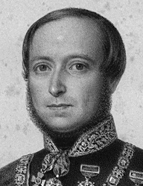

José Silvestre Ribeiro was an energetic civic figure, founding the Animal Protection Society and the Montepio Geral, whose general assembly he chaired, always surrounded by an unfailing aura, as José Germano da Cunha attested: “He knew how to overcome political disturbances, how to dominate them, not escorted by bayonets or cannons, but presenting himself alone, fearless, on the pedestal of the esteem and consideration they had for him, of the fame of an honourable and upright man that illuminated him, of the prestige of his name that blessed him. Without wavering, without slipping for a single moment, he always knew how to maintain the full height of his dignity as a wise man and magistrate, as a distinguished citizen, full of selflessness and disinterest, as an ardent patriot, evangeliser of all the most beautiful achievements of progress.” (Extraordinary State Councillor José Silvestre Ribeiro, 1893, p. 36).
As a researcher, he devoted himself mainly to three central scientific areas: administrative studies, literary research and historiographical practice on institutions throughout our history. Thus, still in the field of institutional history, he is unanimously considered a visionary due to his major, albeit incomplete, work, Historia dos Estabelecimentos Scientificos, Litterarios e Artisticos de Portugal nos successivos reinados da Monarchia (vols. I-XVIII, 1871-1893), which reveals his relentless pursuit of historical accuracy: “We continue to employ the necessary diligence to gather as much information as possible about each of the institutions and to base our assertions on solid foundations and authoritative evidence. However, although we can guarantee the scrupulousness with which we carry out our work, we do not dare to flatter ourselves that we have fully satisfied our commitment” (“Prologue”, vol. II, p. X). This reveals an ambition for the procedures and requirements of a positivist and erudite documentary history, which sought to include all national institutions that revealed unique characteristics in the fields of literature, arts and sciences throughout the reigns, while remaining a useful and reliable study tool according to current standards.
This work is financed by national funds through FCT - Foundation for Science and Technology, I.P, in the scope of the projects UIDB/04311/2020 and UIDP/04311/2020.
